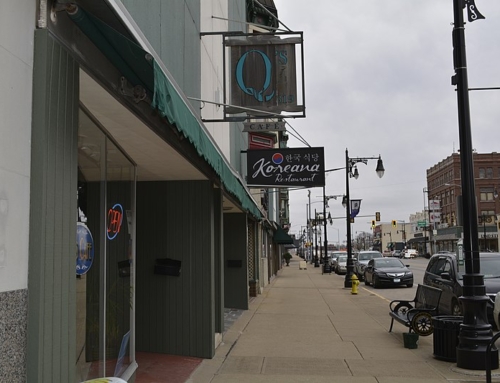If you’re looking for a church in the Galesburg, IL area, you’ve likely noticed that there are many! One common question from prospective church

members is, “how do I know which denomination I should choose?” Understanding what the Bible has to say about denominational differences is crucial in your search for a Galesburg IL church.
How a church relates to Jesus is of utmost importance. If you’re researching Baptist and Catholic Galesburg churches, you’ve seen that both denominations place Jesus in a prominent position. But how are these two groups different in their teaching about Jesus and their methods of worshiping Him? Essentially, both groups teach that Jesus is God and that he died for the forgiveness of sins, but Catholics do not pray exclusively to Jesus, and their worship of Jesus involves mystical elements that Baptists do not practice. This side-by-side comparison will offer further clarity.
Baptists and Catholics: Differences in Prayer
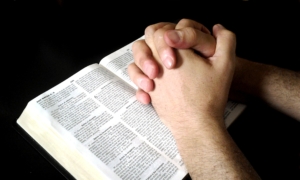
Baptists believe that only the Father in Jesus’ name has the power to answer prayer, and that all prayers should be directed to Jesus or to other members of the Trinity (the Father, Son (Jesus), and Holy Spirit). In John 14:14, Jesus tells his followers that we can ask anything in his name. James 1:1-7 commands us to pray directly to God with faith that is unwavering. Furthermore, in Acts 8:22, Peter tells Simon to repent of his sin and pray directly to God for forgiveness. Baptists support their beliefs about prayer using many other Bible passages, too. They find no scriptural basis for praying to anyone else.
On the other hand, Catholics pray not only to the Father and Jesus, but to a variety of other figures, including Jesus’ mother Mary and various people whom the Catholic church considers saints, like Saint Anne, Saint Anthony, Saint Michael, and Saint Peter. Some of these saints lived at the time of Christ or while the New Testament was being written, while others lived in the decades and centuries after Jesus’ ministry.
In fact, a common Catholic prayer is directed to Mary herself: “holy Mary, Mother of God, pray for us sinners.” This prayer is asking Mary herself to pray to Jesus for our sins to be forgiven.
The Bible clearly teaches that, when Jesus died on the cross for our sins, He removed any need for an intercessor (someone to serve as a go-between to carry requests from us to Him).
1 Timothy 2:5 5 For there is one God, and one mediator between God and men, the man Christ Jesus.
The writer of Hebrews tells us to go boldly and directly before God’s throne in prayer when we need Him. Prayers directed to Mary instead of to the Father or Jesus are not observing this command.
Baptists and Catholics: Differences in Representations of Jesus
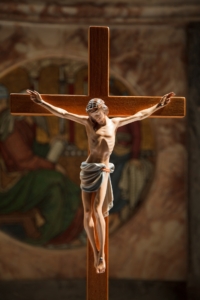
Baptists believe that the cross is a powerful symbol of Jesus’ sacrifice. They sing about the cross, they express their gratitude for Jesus’ work on the cross, and they sometimes include cross symbols in their church environment or display crosses in their personal lives. However, Baptists do not worship physical representations of Jesus. They only worship the person of Jesus Himself, which does not take a form that’s visible to believers today.
Catholics use statues, pictures, and crucifixes (artistic representations of Jesus on the cross) in different ways. Catholics may bow in front of a statue, kneel before it, or even kiss it. Historically, the Catholic church has claimed that statues of Jesus, Mary and various saints are endowed with powers to heal disease or forgive sin.
The Bible is very clear that statues and artwork are not to be worshipped. In the Old Testament, God repeatedly warns Israel not to make idols or graven images that represent Him. The New Testament also makes it clear in numerous passages that we worship an invisible God, not a visible one. Verses like 1 Timothy 6:16 describe God as surrounded by light and invisible to human eyes. Jesus Himself said, in Luke 17, that the Kingdom of God doesn’t produce a visual display. You can’t point to a physical object or a visible sign of God’s presence; rather, He takes an invisible form in our midst. Scriptural principles found from Genesis to Revelation establish that God is spirit, and must be worshipped spiritually.
Baptists and Catholics: Different Beliefs About Jesus’ Body
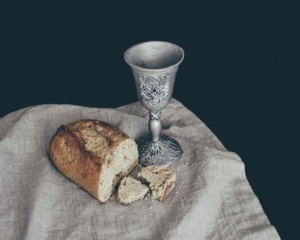
In Matthew 26, Jesus eats his last meal with his disciples before he is arrested and taken for trial and crucifixion. At this meal, Jesus broke and ate a piece of bread and drank wine, telling his followers to “do this in remembrance of Me.” He called the bread “My body” and the wine “My blood,” and invited his disciples to eat it with him. These physical objects served as a metaphorical picture of what would soon happen to Jesus: his body would be broken and his blood would be spilled by brutal Roman executioners.
Baptist churches continue to share bread and grape juice or wine as a church body at regularly scheduled intervals. Often called “The Lord’s Supper” or “Communion,” this practice serves as a reminder of Jesus’ sacrifice on the cross. Baptists treat this as a time of reverent reflection on the gift of salvation.
Catholics also practice Communion, sharing wine and bread together as a congregation. However, the Catholic church teaches that during Communion, the priest changes the wine and bread into the body and blood of Christ.
Baptists point out that there is no scriptural basis for this teaching. Rather, there are many spiritual principles establishing that the bread and wine are metaphors for Jesus’ body and blood. In Hebrews 10, the writer tells us that Jesus’ sacrifice was done once and for all, and never needs to be
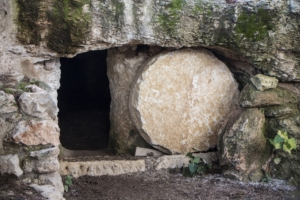
repeated again. If Jesus’ body is mystically recreated over and over again each time a congregation shares Communion, then His sacrifice is being repeated over and over. Baptists reject the claim that wine or juice and bread are changed into Jesus’ body, because it clearly contradicts Scripture.
If you’re interested in more details about the difference between Baptist and Catholic churches, or you’d like to find out more about Harmony Baptist Church in Galesburg, IL, we are happy to help! Find out more about eternal life or navigate to our Contact page and reach out today with any questions you may have.




